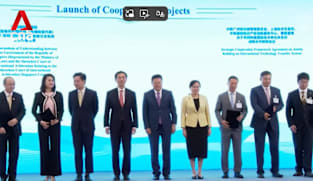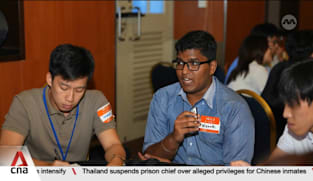Committee of Supply 2024 debate, Day 4: Koh Poh Koon on boosting retirement adequacy and uplifting workers
To uplift Singaporeans, the Government has put in place measures to boost the retirement adequacy of seniors and improve protection of workers. At the same time, it continues to transform the migrant worker ecosystem by improving existing housing and healthcare needs, as well as increasing engagements with migrant workers. Senior Minister of State for Manpower Koh Poh Koon said this in Parliament on Monday (Mar 4) as he outlined the Government’s programmes and initiatives to build a shared future together. On efforts to boost retirement adequacy of seniors, Dr Koh highlighted the improvements to the Central Provident Fund (CPF) system. He assured Singaporeans that as long as they work and contribute consistently to CPF, they will be able to meet their retirement needs through payouts. For those who are not able to work and contribute consistently, the Government will enhance the Matched Retirement Savings Scheme (MRSS) and the Silver Support Scheme. For example, from 2025, the MRSS will be extended beyond the current age cap of 70 years old. The number of Singaporeans eligible will double to about 800,000 per year. The maximum matching grant quantum will be increased to S$2,000 per year and capped at S$20,000 over an eligible member’s lifetime. Dr Koh said an eligible senior who receives annual cash top-ups of S$2,000 for 10 years can see his retirement savings increase by about S$48,000 - up by about S$260 in lifelong monthly CPF payouts. Turning to measures to strengthen job prospects and career health, Dr Koh stressed the need to transform the migrant worker ecosystem and improve their well-being. He said the Ministry of Manpower (MOM) has made significant moves, with all regulated dormitories expected to meet even higher dormitory standards, which will in turn strengthen public health resilience to better prepare Singapore for future disease outbreaks. He said when the economy reopened after the COVID-19 pandemic, employers were desperate to catch up on projects that were delayed and have been hiring more migrant workers. The number of work permit holders in the construction, marine and process sectors is now 20 per cent higher than in pre-COVID days, leading to a market-induced shortage of dormitory beds. Dr Koh said MOM has been working closely with key stakeholders to make more dormitory beds available to accommodate this growth while ensuring that they meet dormitory standards. Since December 2022, 17,000 dormitory beds have been added while about 47,000 will be available over the next few years as seven more purpose-built dormitories come into operation. Dr Koh said it is not sustainable to keep building or adding beds because when the catch-up projects are completed and the excess workers return to their home countries, there may be excess dormitory beds. Dr Koh said the most sustainable way is for employers to reduce their reliance on migrant workers by adopting productivity measures.
To uplift Singaporeans, the Government has put in place measures to boost the retirement adequacy of seniors and improve protection of workers. At the same time, it continues to transform the migrant worker ecosystem by improving existing housing and healthcare needs, as well as increasing engagements with migrant workers. Senior Minister of State for Manpower Koh Poh Koon said this in Parliament on Monday (Mar 4) as he outlined the Government’s programmes and initiatives to build a shared future together. On efforts to boost retirement adequacy of seniors, Dr Koh highlighted the improvements to the Central Provident Fund (CPF) system. He assured Singaporeans that as long as they work and contribute consistently to CPF, they will be able to meet their retirement needs through payouts. For those who are not able to work and contribute consistently, the Government will enhance the Matched Retirement Savings Scheme (MRSS) and the Silver Support Scheme. For example, from 2025, the MRSS will be extended beyond the current age cap of 70 years old. The number of Singaporeans eligible will double to about 800,000 per year. The maximum matching grant quantum will be increased to S$2,000 per year and capped at S$20,000 over an eligible member’s lifetime. Dr Koh said an eligible senior who receives annual cash top-ups of S$2,000 for 10 years can see his retirement savings increase by about S$48,000 - up by about S$260 in lifelong monthly CPF payouts. Turning to measures to strengthen job prospects and career health, Dr Koh stressed the need to transform the migrant worker ecosystem and improve their well-being. He said the Ministry of Manpower (MOM) has made significant moves, with all regulated dormitories expected to meet even higher dormitory standards, which will in turn strengthen public health resilience to better prepare Singapore for future disease outbreaks. He said when the economy reopened after the COVID-19 pandemic, employers were desperate to catch up on projects that were delayed and have been hiring more migrant workers. The number of work permit holders in the construction, marine and process sectors is now 20 per cent higher than in pre-COVID days, leading to a market-induced shortage of dormitory beds. Dr Koh said MOM has been working closely with key stakeholders to make more dormitory beds available to accommodate this growth while ensuring that they meet dormitory standards. Since December 2022, 17,000 dormitory beds have been added while about 47,000 will be available over the next few years as seven more purpose-built dormitories come into operation. Dr Koh said it is not sustainable to keep building or adding beds because when the catch-up projects are completed and the excess workers return to their home countries, there may be excess dormitory beds. Dr Koh said the most sustainable way is for employers to reduce their reliance on migrant workers by adopting productivity measures.



















